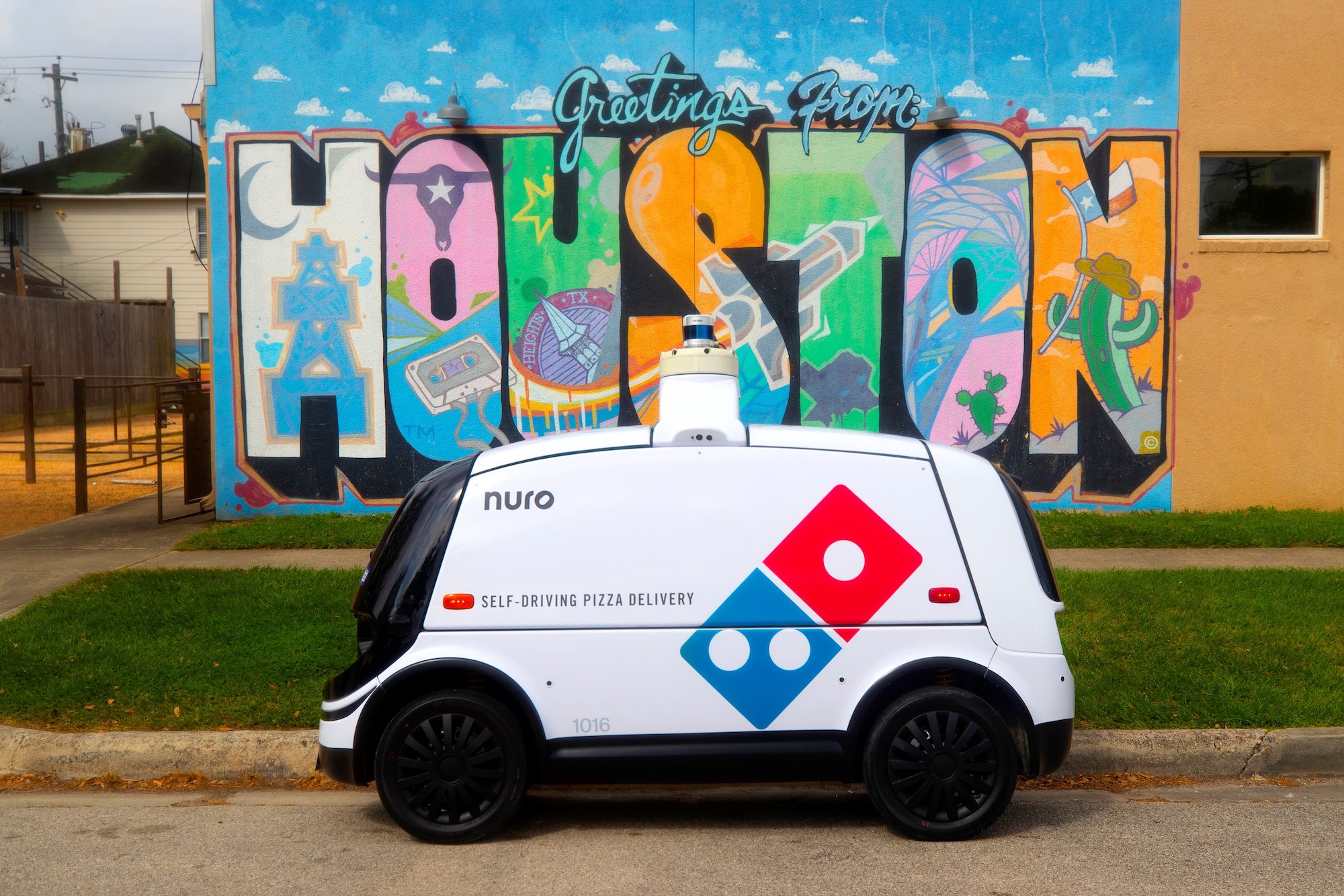Pandemic pizza was definitely a thing.
U.S. consumers forked out a record-breaking $14 billion to have pizza delivered to their doors in 2020, and nearly half of that total was spent with just one brand: Domino’s.
“Domino’s is the home of pizza delivery,” said Dennis Maloney, Domino’s chief innovation officer. “Delivery is at the core of who we are, so it’s very important for us to lead when it comes to the consumer experience of delivery.”
U.S. consumers forked out a record-breaking $14 billion to have pizza delivered to their doors in 2020, and nearly half of that total was spent with just one brand: Domino’s.
In its latest TV ad, an order of Domino’s pizza speeds to its destination inside a Nuro R2X delivery autonomous vehicle (AV). The R2X (now known as R2) deftly avoids potholes, falling trees and traffic jams caused by The Noid — a character created by Domino’s in the 1980s to symbolize the difficulties of delivering a pizza in 30 minutes or less.
The reality is much more sedate. Domino’s currently has just one R2X that operates from a single Domino’s store on the generally calm streets of Woodland Heights in Houston, Texas. And since the AV’s introduction in April, The Noid has yet to put in an appearance.
“The R2X adds a bunch of efficiencies while not taking away from any existing capabilities,” Maloney said. “As we start getting the bot into regular operation, we’ll see if it plays out the way we expect it to. So far, all the indications are good.”
Nuro and Domnio’s launched the autonomous pizza delivery service in Huston in April this year. Image Credits: Nuro
Partnerships are key for Nuro. The company’s business model is to sign contracts with established brands that either have their own branded vehicles or use traditional delivery companies like UPS or the U.S. Postal Service.
Nuro is carrying out trials and pilot deliveries with a number of companies, including fast casual restaurant chain Chipotle, Kroger grocery stores, CVS pharmacies, bricks-and-mortar retail behemoth Walmart, and, most recently, global parcel courier FedEx. While it is a dizzyingly impressive list for a company less than five years old, their interest was driven as much by global trends as by Nuro’s technology, admits Cosimo Leipold, head of partnerships at Nuro.
“Everybody today wants what they want and they want it faster than ever, but frankly they’re not willing to pay for it,” Leipold said. “We’ve reached a point where almost every company is going to have to offer delivery services, and now it’s just the question of how they’ll do it in the best possible way and with the most possible control.”
Nuro’s delivery AVs — aka bots — offer the tantalizing promise of safe, reliable and efficient delivery without sacrificing revenue and customer data to third-party platforms like Grubhub, DoorDash or Instacart. Alongside Nuro’s stated aim of driving the cost of delivery down to zero, it is little surprise that Nuro now finds itself in the enviable position of being able to pick and choose the partners it wants — and the less enviable position of having to choose which partner to prioritize.
Here’s the story of how one of Nuro’s biggest partnerships came to be, and the lessons and companies that will drive its future growth.
Deliveries with extra cheeseDomino’s has a long history of innovating in delivery, usually accompanied by a strong marketing campaign. In the 1980s, the company bought 10 customized Tritan Aerocar 2s, a Jetsons-styled three-wheeler, for use as delivery vehicles. In 2015, the company unveiled the DXP, a Chevrolet Spark modified with a single seat and a built-in warming oven, designed specifically for transporting pizza.